- Home
- L. Ron Hubbard
Ai! Pedrito!: When Intelligence Goes Wrong Page 2
Ai! Pedrito!: When Intelligence Goes Wrong Read online
Page 2
The aide dashed off, returning a moment later with a straggly haired brunette woman, whose face wore the hardened, deadly look of a dedicated revolutionary. Her mouth was an angry line. "Si, Colonel?"
"Fast, fast, Maria!" Enrique said. He fumbled in the photos and eventually found a phone slip, peeling it from the back of one of the enlargements. "Get this number. Plan G goes into operation at once, at once!"
"Si, Colonel! At once!" Maria seized the slip of paper, scanned the numbers, then stuffed the paper in her mouth, chewing it to bits before the colonel could stop her. He admired her dedication.
She grabbed the phone as if she were trying to subdue it, then dialed the number. "Operator," she said, her mouth still stuffed with wet paper. Her inflection remained deadly. "Operator—get me the New York Office of Naval Intelligence. I must speak with Lieutenant Tom Smith."
Chapter 2
THE STENCILED LETTERS on the translucent glass door read Lieut, (jg) Tom Smith, USN, Missile Security Section. Then, in larger letters, it proudly stated Office of Naval Intelligence.
"I just don't get it," Lieutenant Smith said. He sat at his desk in full uniform, scratching his bright red hair.
The phone rang beside him, but he ignored it. He couldn't afford to be distracted at this crucial moment as he studied the missile plans, trying to fathom how this design was different from the thousand similar plans he had approved for massive funding requests.
Two well-dressed civilian contractors fidgeted in front of him, looking at each other through narrowed eyes, as if afraid Smith might catch them at a prank. Both contractors carried other blueprints tucked under their arms.
"It's perfectly simple, Lieutenant Smith," one contractor said, seemingly perplexed that Smith did not grab the phone as it rang a second time. "The design is exactly the same as all the other ones you approved, only different."
"Then why do we have to fund new development, if this one's exactly the same?" Smith asked in confusion.
"It's substantially modified," the second contractor answered smugly.
"I don't know, gentlemen," Smith told the contractors, smoothing the curled edges of the blueprints spread out on his neat, military-issue gray desk. A List of Things to Do Today sat next to the IN box; very few of the items on the list had been checked off.
As if miffed at being summarily ignored, the phone rang a third time.
"There are so many new developments that I can't keep them straight." He gestured toward the corner of his office, where a drawing board groaned under the strain of heaped plans for new missile systems. The blueprints awaited his approvals, or revisions, or signatures, before they could be filed.
The first contractor reached forward to point at intricate lines scrawled on the blueprint. "Lieutenant Smith, you must admit this missile system is secure."
The second contractor exulted with an eager grin, "This modified design is so complex, it takes twelve years of college for anyone to operate it! The new concept is a testament to how much respect we hold for the education and intelligence of our proud men in uniform."
Smith shook his head and looked up at them, bewildered. "But I can't make head nor tail of it."
"Exactly, that's the point!" the first contractor said. "Completely secure. You're one of our most capable men, and if this system baffles you, imagine how it will confound our enemies! No enemy agent will ever be able to thwart this system, and our nation will be safe."
Smith continued to look up at the first contractor. "Then how can we use it, if nobody can understand it?"
The first contractor said patiently, tucking additional rolled blueprints under his arm, "You just push this red button, and the system handles the rest! Look, Lieutenant Smith, nobody is asking you to understand it. As a Naval Intelligence officer, all you have to do is stamp it approved!"
Smith frowned down at the plan, shaking his head. "If only the instructors at the Naval Academy had talked about these missiles a little more ..."
He sighed deeply and picked up a rubber stamp, flipping it over to read APPROVED in reverse letters. Then he rummaged in his desk drawer for an inking pad, before finally banging the stamp haphazardly on the blueprint.
Jubilant, the two contractors whisked away the plan. Without bothering to roll the blueprint they rushed out the door, heading down the hall to the next office, where they would go through the same process with another set of plans and another Naval Intelligence officer with another rubber stamp.
Smith stared after the contractors, sighed deeply again, then finally noticed the incessantly ringing phone. He snatched up the handset, pressing it to his ear. "Yes? How may I help you?"
"Is this Lieutenant Smith?" a woman's voice asked. He thought he heard a crisp Cuban accent in her words.
Hubbard & Anderson
"Yes," Smith answered.
"Lieutenant Tom Smith?" she continued. "Junior grade?"
"Yes."
"Office of Naval Intelligence?" Yes.
"Missile Security Section?"
"Yes, yes. Is this a sales call?" He looked forlornly down at his List of Things to Do Today.
"We just wanted to be absolutely certain, Lieutenant Smith. This is your lucky day—we have some exciting news for you, senor."
Brightening, Smith pulled himself closer to his desk. "What is it? Who's calling?"
"This is Maria calling from, uh, Pan-Latin Airways. Congratulations! You have just won our contest." Despite her attempts to sound like an American professional public relations specialist, the singsong quality of her voice carried an underlying coldness.
"I have?" Smith asked. "But I don't even enter contests. I never gamble."
"This is a contest you don't have to enter," Maria said. "You were the millionth person to enter the World Trade Center this month."
"There must be some mistake," Smith said, flipping back through the calendar on his desk. "I've never even been to the World Trade Center."
"Oh, I'm sorry. You should go there—I hear it's a wonderful place." He heard Maria shuffling papers. "Ah, sorry, you were the millionth person to enter the Cathedral of Saint John the Divine."
"I've never been there either. What city is that in?"
Maria's voice became deeper, colder, very deadly. "You were the millionth person to pass Forty-Second and Broadway."
"Look, I—"
"Senor, you won, do you hear? You won!" Her voice began to rise and become more frantic: "I don't know how you won, I'm just trying to do my job. Why are you giving me such a hard time? Do you want me to cry or something?" She sounded close to hysterics. "Oh, my God, now my supervisor is looking at me! Are you trying to get me fired?"
"Oh," Smith said, finally coming to his senses. "I didn't mean to get you in trouble. I'm so sorry."
"Look, Mr. Smith, just be happy. You're name is at the top of the list. You won a trip, and everyone else won little marshmallow candies shaped like skulls to help them celebrate the day of the dead. You're the big lucky winner, okay? The big man. Everybody is going to envy you!"
Smith seemed taken aback. "Uh, okay, what did I win? I've never won anything before."
Maria's voice became bright and happy again. "You have won an all-expense-paid three-day tour to the beautiful country of Colodor in South America. The finest hotels, the best cuisine. Three marvelous days in the beautiful capital city of Santa Isabel! You lucky, lucky boy! So just pick up your tickets at Pan-Latin Airways and away you go!"
Smith looked at the phone, excited but then curious. "Colodor? Santa Isabel? I've never heard of it."
"Ah, senor, Colodor is the pearl of South America! Lovely, lush, full of scenery and culture. And Santa Isabel has much history and interesting architecture."
"If you say so, but it still doesn't even sound like a real country. In fact, it sounds like something made up for a pulp-fiction adventure story."
"Now, now, don't be ridiculous," Maria said, her voice soothing. "How could you win a trip to a country that doesn't exist? It is a
very important country in South America. I should know: My brother runs the Department of Education there— and also the Department of Plumbing and Insect Control!"
He swiveled in his chair and squinted closely at the large map of the world on his wall. Smith had joined the Navy to be more like his hero. Admiral Nelson, exploring the vast world on majestic sailing ships, defending the British Empire. Smith hadn't really anticipated sitting at a desk and stamping blueprints for his entire career.
"I'm looking at my map right now, miss, and I don't see Colodor anywhere in South America." He was more perplexed than suspicious.
"It is near Colombia and Ecuador," Maria answered smoothly, "but unfortunately the mapmakers' union has been on strike. You won't find Colodor shown on many charts. A very messy situation with the Ministry of Mapmaking. My family has nothing to do with that, I swear!"
"Oh, that explains it," Smith said, relieved. He jotted down the information he needed to pick up his prize tickets, thanked Maria politely, and then hung up the phone.
In a blessed moment of silence. Smith stared over at the stack of incomprehensible blueprints on his drawing board. Then, with a wistful glance over his shoulder, he focused on the map of South America again, imagining where the mysterious Colodor might be located.
He threw the whole pile of blueprints off his drawing board, stood up, and straightened his uniform jacket before walking out the door. He would just have to see the place for himself!
Back in the Operations Office deep in Morro Castle, Maria narrowed her dark eyes and gave a deadly nod to the Russian and Cuban colonels. "Lieutenant Tom Smith has fallen right into our clutches."
Colonel Enrique let out a whoop. "Ai! Plan G is at last underway!" He clapped a congratulatory hand on his bearlike comrade's broad shoulder. "Make sure Bolo is ready to do his part.
Colonel Ivan beamed, raising his bushy eyebrows. "Da, the switch will be a success." He snapped shut his briefcase. "Now, about those cigars, Comrade Enrique?"
Chapter 3
ADMIRAL TURNER, New York's director of Naval Intelligence, sat at his desk holding a dice cup in his hand. The portable radio on the windowsill was tuned to the "All Lawrence Welk" station, and soothing popular favorites tinkled in the air like floating soap bubbles.
The old admiral slammed the cup down to roll the six poker dice again and stared at the results. "Oh, blast and damn!"
As he moved, his gold braid, campaign ribbons and polished medals jingled above his stiff uniform. His steel-gray hair poked up, close cropped and bristly; his skin had the worn, old-leather look of a man who had spent his life facing the salt air of the sea ... or just from using too harsh a brand of after-shave.
After knocking briskly, Tom Smith marched in and stood at the side of the desk, waiting until his superior officer granted him a moment of attention. The Lawrence Welk music on the radio made Smith drowsy, but he shook his head, rehearsing what he meant to say.
Admiral Turner did not glance up at Smith. "I just can't seem to beat myself today." He stared at the dice scattered across the paper clips and telephone message slips on his desk. With a rattle, he swept the dice back into the cup and thrust it across the desk toward Smith, knocking a few TOP SECRET memos aside. "Here, boy, you try your hand."
Smith looked at the cup, plucking out one of the dice critically. He understood what the dice were for, though he had never played, never tried to fathom the rules. Even if he had wanted to, though, he spotted no place to roll the dice on the cluttered desk. "But, sir, I'm afraid I—"
"Oh, I forgot," the admiral said with a sigh. He snatched back the dice cup. "You don't gamble, you don't drink. In every other way, you're a very promising officer—tops in your class. But you lack ... I don't know—vision or Navy spirit or ... whatever. We've got to do something about you. Smith." He opened his lower desk drawer and dropped the dice cup beside a silver whiskey flask, a stack of poker chips and two decks of playing cards. Then he folded his big-knuckled hands as he hunched across the desk. "Didn't they teach you anything at the academy? The Navy is going to hell these days, ever since we banned all the hazing rituals. You've got to keep up the tradition, young man— the burden rests on your shoulders."
Shaking his head. Admiral Turner heaved himself out of his creaking chair and walked over to the grime-streaked window. He looked past the pigeons to the bustling New York street. He clasped his hands behind his back as if he were on the bridge of a great sailing ship, gazing across the waves in search of an island.
Smith just stood there, a little crestfallen. The admiral often got into one of these moods.
"Sometimes I wonder what the world is coming to," the old man continued in a soft voice, self-absorbed. He rapped his knuckles against the window, startling the pigeons, and turned to look at Smith, his hands on his hips. "I try to be a father figure to my junior officers. I care about each and every one. But, Smith, I've almost given up on you."
He strode over to the clean-cut young lieutenant. "You just don't seem to care about your image, about the Navy's reputation. When you first came aboard, I had hope. I thought you were a man who was going to get on in the world, make his mark! Why, I was certain you'd even make admiral someday. But you're so fastidious you don't make a mark on anything."
The old man slumped in disappointment. The Lawrence Welk station played a particularly maudlin song. Admiral Turner stood by the wall adorned with framed photographs of his former crewmates. Model ships of Navy destroyers, aircraft carriers and submarines sat on display atop his credenza, his bookshelves, his coffee maker.
Smith shuffled his feet in embarrassment. "I'm sorry, sir. I have tried my best."
"Your best? When was the last time you went into a bar and knocked the stuffing out of a few Marines? In my day, I had a girl in every port! But I'm beginning to think you'll die a virgin. What kind of sailor is that? You're getting to be the joke of this whole office!" The admiral raised his voice, as if he were giving his pep talk to a new group of cadets.
He stood directly in front of Smith, who remained at attention, wishing he had not come into the office to make his request after all. From the faint sweet smell that clung to the admiral's uniform. Smith thought the old man had been drinking more than coffee that morning.
"All I'm asking you to do is be a little human. Get drunk once in a while. Find some nice girl from a good family, someone who'll make a good hostess." The old man's eyebrows shot up. "You know ..." he said coyly, as if the idea had just occurred to him, "why not marry somebody like ... like my daughter, Joan? She just wants to marry some nice fellow and settle down, have babies, work in the kitchen. Isn't that what all women want? I've been reading those stories to Joan since she was a little girl. You could be that special fellow. Smith—if you'd just reform!"
Smith stammered, "But, but—I don't know how, sir."
The admiral's expression became severe. "Go out and live a little, expand your horizons!"
"Well, sir," Smith seized upon his opening at last, "that's what I'm here about. Sort of I mean, I'd like to request some time off." He brushed down his uniform, fidgeting. "I just won a contest, sir."
"You?" the admiral said, startled. "Why, that's wonderful! Won a contest, eh?" He added hopefully, "Did you cheat?"
"Well, no, sir," Smith admitted. "I don't even remember entering. I just won, kind of." He shrugged. "But I do need three days off."
"To do what? Read some more books?"
"Oh, no, sir. I'll need to travel. It's an all-expense-paid stay in a luxury hotel. A vacation to some country called Colodor. I can't find it on my charts, though."
"Colodor? That little third-world hellhole? Ah yes, I've heard about their mapmakers' strike. Terrible situation." Then the admiral brightened, clapping a paternal hand on Smith's shoulder. "Wonderful! It'll do you a world of good. Smith. Oh, man, I can see you now! Dancing to soft lights and sexy music, climbing aboard a nice blonde and .. . relaxing! My boy, there's hope for you yet!"
"Does that mean
I can have the time off, sir? I'll need to leave right away, if I'm to accept my prize. I've got tickets to fly into Santa Isabel—"
"Go! Go! By all means go!" The admiral practically shoved him toward the door, then jabbed a finger at him. "And try to get yourself in a little trouble for once. Smith. That's an order!"
"I, uh—yes, sir," he said, then fled into the hall.
Chapter 4
COLONEL ENRIQUE hid between two palm trees near the Santa Isabel International Airport, and watched the jet cruising down through the blue equatorial sky. "Here comes Lieutenant Smith, exactly on time!"
He adjusted his sunglasses, then tugged down his floppy golf hat, secure in his tourist disguise. He wore pants made of material most often seen on sofas and a windbreaker with the name of a bowling league silk-screened on the back.
Enrique turned to his burly companion who wore plaid shorts, black socks and penny-loafers in which he had discreetly tucked copper ruble coins.
Ivan said, "I'm sure he suspects nothing—Americans are used to winning prizes and getting free luxuries. It is all a daily part of their decadent, dying civilization. Make no mistake, Enrique: once, religion was the opiate of the people. Now, it is prize shows and lotteries and the Publisher's Cleaning House Sweepstakes. That is how the bourgeoisie keeps the American pigs feeding at their troughs."
"Ah, you make me feel sorry for them," Enrique said. "Tell me, Ivan, what happens if Smith gets killed during this little escapade?" The Cuban colonel watched the plane come in for a landing.
"I'm counting on it, Enrique," the Russian colonel said with a shrug. He squirted a dab of suntan lotion on the palm of his hand and rubbed it on the tip of his sunburn-red nose. "Our impostor 'Pedrito' will become a martyr to the cause—he'll no doubt be much more manageable that way—and the real Pedrito will be our double agent in the United States. No one will know they have switched places. Long live the people's revolution!"
"Good," Enrique said, "now let's hurry before we get a parking ticket. This isn't peaceful Cuba, you know."

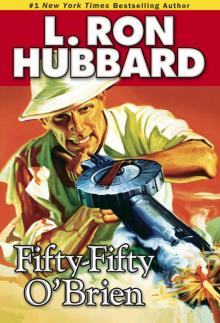 Fifty-Fifty O'Brien
Fifty-Fifty O'Brien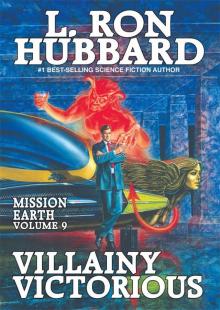 Villainy Victorious
Villainy Victorious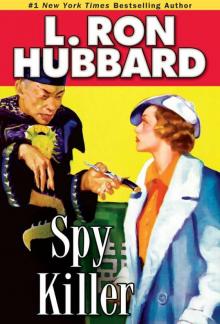 Spy Killer
Spy Killer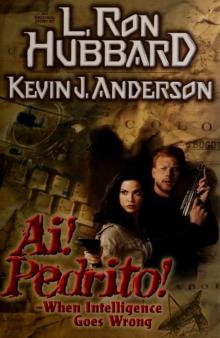 Ai! Pedrito!: When Intelligence Goes Wrong
Ai! Pedrito!: When Intelligence Goes Wrong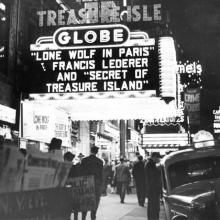 The Dangerous Dimension
The Dangerous Dimension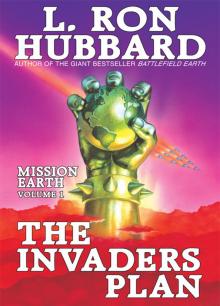 Mission Earth Volume 1: The Invaders Plan
Mission Earth Volume 1: The Invaders Plan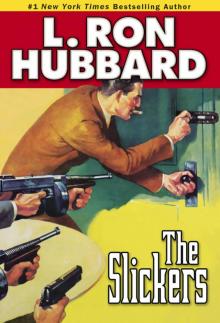 The Slickers
The Slickers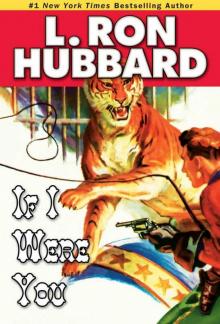 If I Were You
If I Were You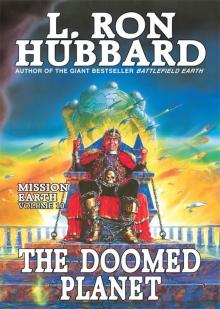 The Doomed Planet
The Doomed Planet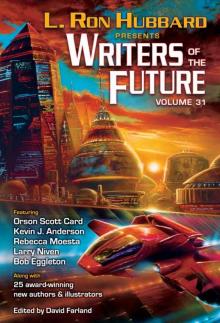 Writers of the Future Volume 31
Writers of the Future Volume 31 Mission Earth Volume 2: Black Genesis
Mission Earth Volume 2: Black Genesis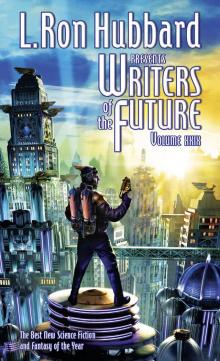 Writers of the Future: 29
Writers of the Future: 29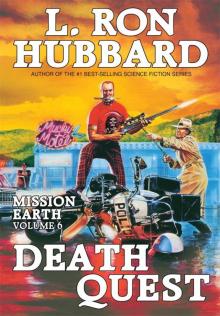 Death Quest
Death Quest The Enemy Within
The Enemy Within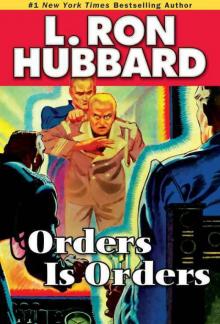 Orders Is Orders
Orders Is Orders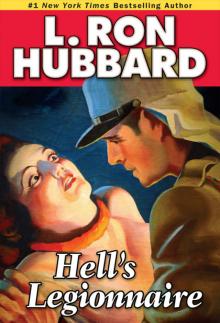 Hell's Legionnaire
Hell's Legionnaire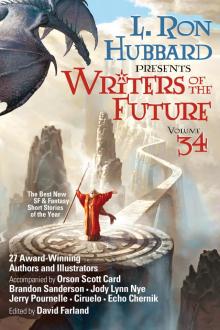 L. Ron Hubbard Presents Writers of the Future 34
L. Ron Hubbard Presents Writers of the Future 34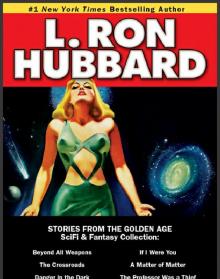 The Scifi & Fantasy Collection
The Scifi & Fantasy Collection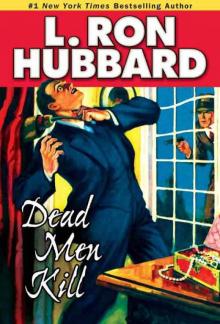 Dead Men Kill
Dead Men Kill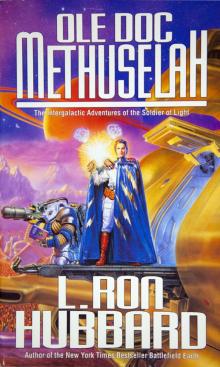 Ole Doc Methuselah: The Intergalactic Adventures of the Soldier of Light
Ole Doc Methuselah: The Intergalactic Adventures of the Soldier of Light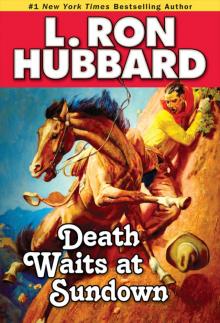 Shadows From Boot Hill
Shadows From Boot Hill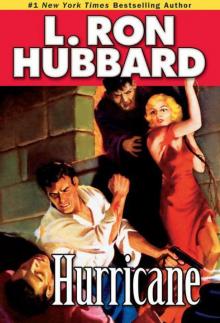 Hurricane
Hurricane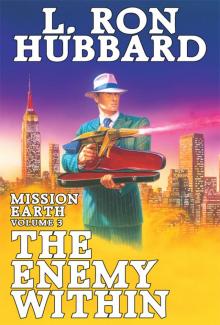 Mission Earth Volume 3: The Enemy Within
Mission Earth Volume 3: The Enemy Within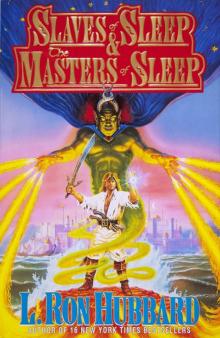 Slaves of Sleep & the Masters of Sleep
Slaves of Sleep & the Masters of Sleep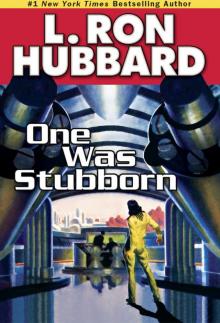 One Was Stubborn
One Was Stubborn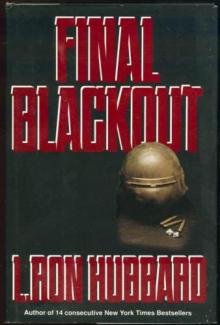 Final Blackout: A Futuristic War Novel
Final Blackout: A Futuristic War Novel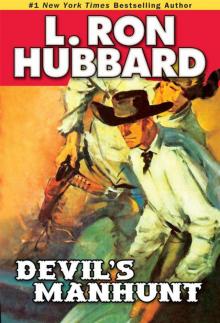 Devil's Manhunt
Devil's Manhunt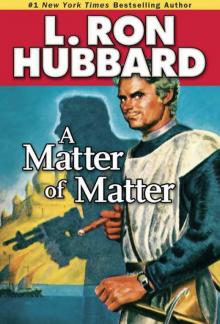 A Matter of Matter
A Matter of Matter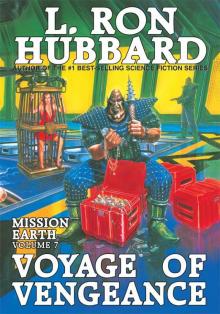 Voyage of Vengeance
Voyage of Vengeance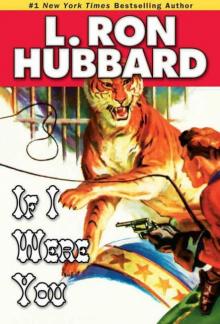 If I Were You (Science Fiction & Fantasy Short Stories Collection)
If I Were You (Science Fiction & Fantasy Short Stories Collection)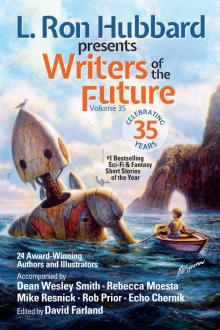 L. Ron Hubbard Presents Writers of the Future Volume 35
L. Ron Hubbard Presents Writers of the Future Volume 35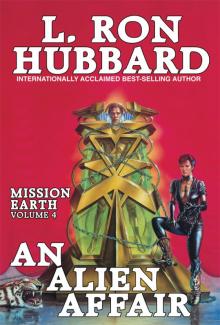 Mission Earth Volume 4: An Alien Affair
Mission Earth Volume 4: An Alien Affair Black Genesis
Black Genesis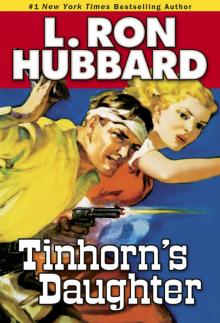 Tinhorn's Daughter
Tinhorn's Daughter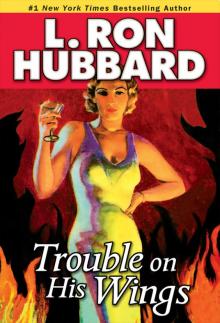 Trouble on His Wings
Trouble on His Wings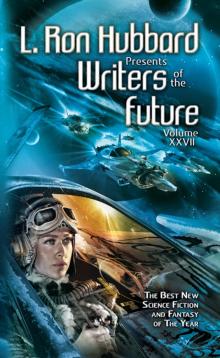 Writers of the Future Volume 27: The Best New Science Fiction and Fantasy of the Year
Writers of the Future Volume 27: The Best New Science Fiction and Fantasy of the Year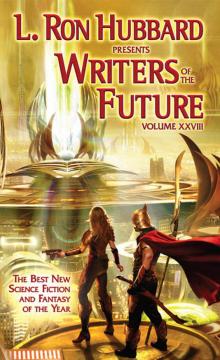 Writers of the Future Volume 28: The Best New Science Fiction and Fantasy of the Year
Writers of the Future Volume 28: The Best New Science Fiction and Fantasy of the Year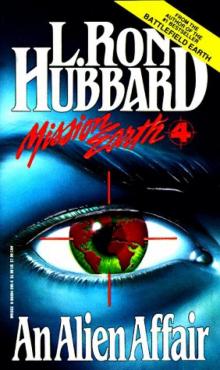 An Alien Affair
An Alien Affair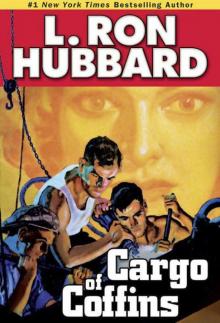 Cargo of Coffins
Cargo of Coffins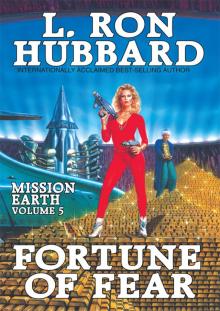 Mission Earth Volume 5: Fortune of Fear
Mission Earth Volume 5: Fortune of Fear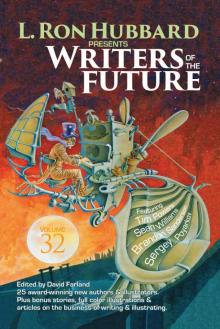 Writers of the Future 32 Science Fiction & Fantasy Anthology
Writers of the Future 32 Science Fiction & Fantasy Anthology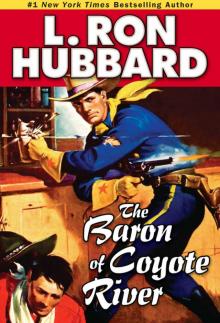 The Baron of Coyote River
The Baron of Coyote River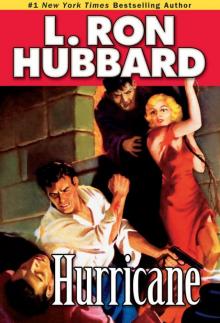 Hurricane (Stories From the Golden Age)
Hurricane (Stories From the Golden Age)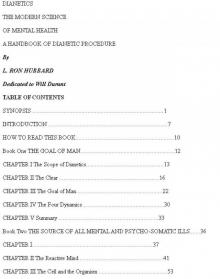 Dianetics: The Modern Science of Mental Health
Dianetics: The Modern Science of Mental Health Writers of the Future, Volume 30
Writers of the Future, Volume 30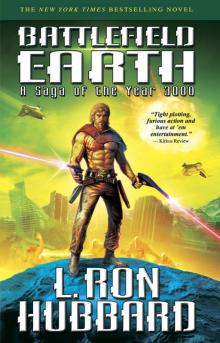 Battlefield Earth: A Saga of the Year 3000
Battlefield Earth: A Saga of the Year 3000 Fear
Fear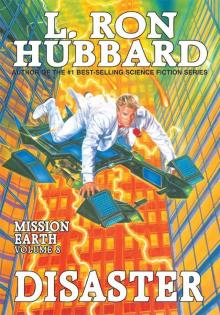 Disaster
Disaster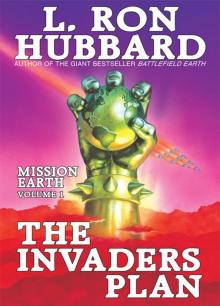 Invaders Plan, The: Mission Earth Volume 1
Invaders Plan, The: Mission Earth Volume 1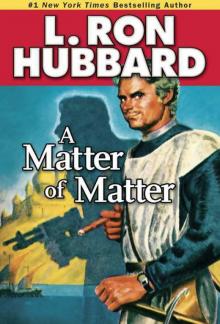 A Matter of Matter (Stories from the Golden Age)
A Matter of Matter (Stories from the Golden Age)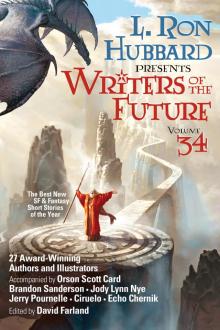 Writers of the Future Volume 34
Writers of the Future Volume 34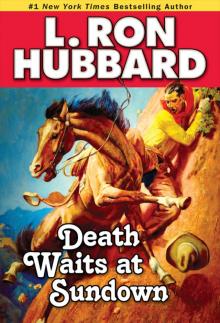 Death Waits at Sundown
Death Waits at Sundown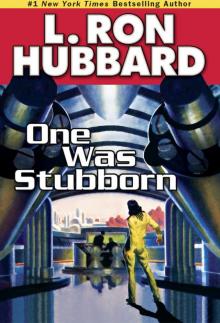 One Was Stubbron
One Was Stubbron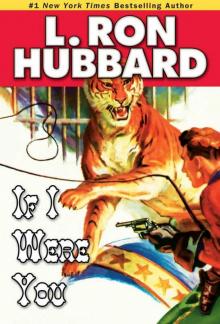 If I Were You (Stories from the Golden Age)
If I Were You (Stories from the Golden Age)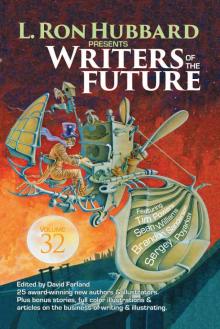 Writers of the Future 32 Science Fiction & Fantasy Anthology (L. Ron Hubbard Presents Writers of the Future)
Writers of the Future 32 Science Fiction & Fantasy Anthology (L. Ron Hubbard Presents Writers of the Future)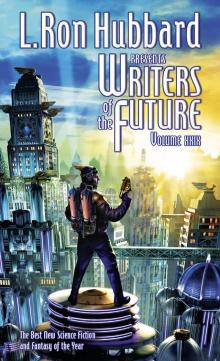 Writers of the Future, Volume 29
Writers of the Future, Volume 29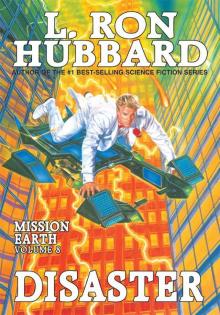 Mission Earth Volume 8: Disaster
Mission Earth Volume 8: Disaster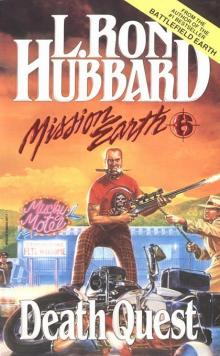 Mission Earth 6: Death Quest
Mission Earth 6: Death Quest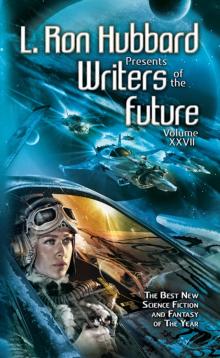 Writers of the Future, Volume 27
Writers of the Future, Volume 27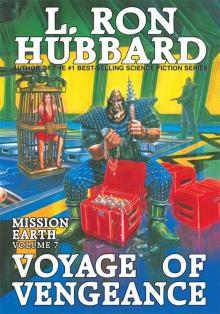 Mission Earth Volume 7: Voyage of Vengeance
Mission Earth Volume 7: Voyage of Vengeance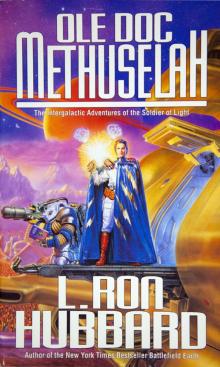 Ole Doc Methuselah
Ole Doc Methuselah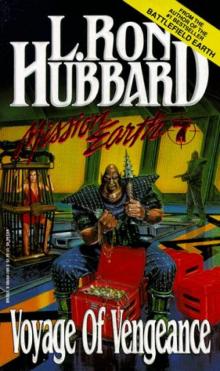 Mission Earth 07: Voyage of Vengeance
Mission Earth 07: Voyage of Vengeance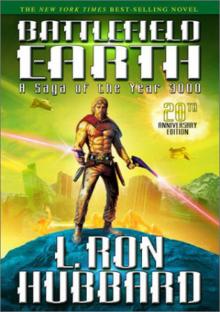 Battlefield Earth
Battlefield Earth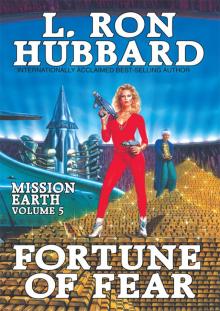 Fortune of Fear
Fortune of Fear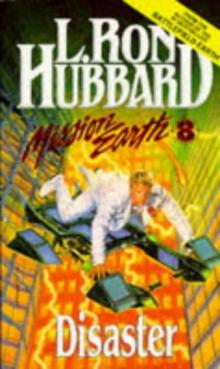 Mission Earth 8: Disaster
Mission Earth 8: Disaster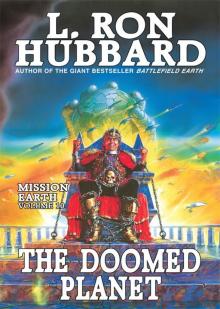 Mission Earth Volume 10: The Doomed Planet
Mission Earth Volume 10: The Doomed Planet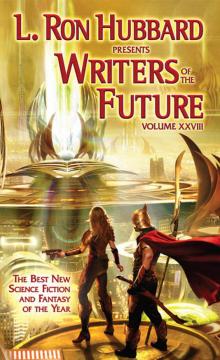 Writers of the Future, Volume 28
Writers of the Future, Volume 28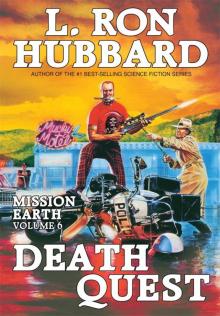 Mission Earth Volume 6: Death Quest
Mission Earth Volume 6: Death Quest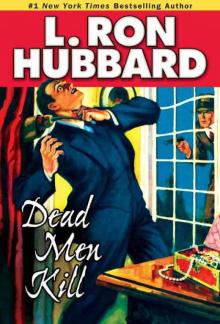 Dead Men Kill (Stories from the Golden Age)
Dead Men Kill (Stories from the Golden Age)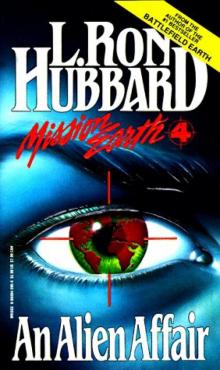 Mission Earth 4: An Alien Affair
Mission Earth 4: An Alien Affair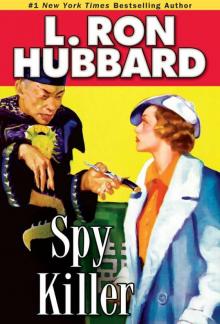 Spy Killer (Stories from the Golden Age)
Spy Killer (Stories from the Golden Age)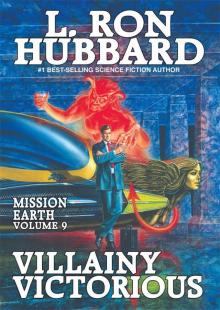 Mission Earth Volume 9: Villainy Victorious
Mission Earth Volume 9: Villainy Victorious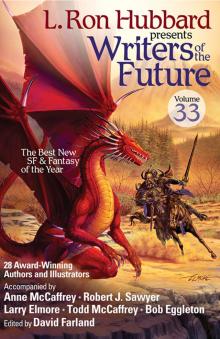 L. Ron Hubbard Presents Writers of the Future, Volume 33
L. Ron Hubbard Presents Writers of the Future, Volume 33